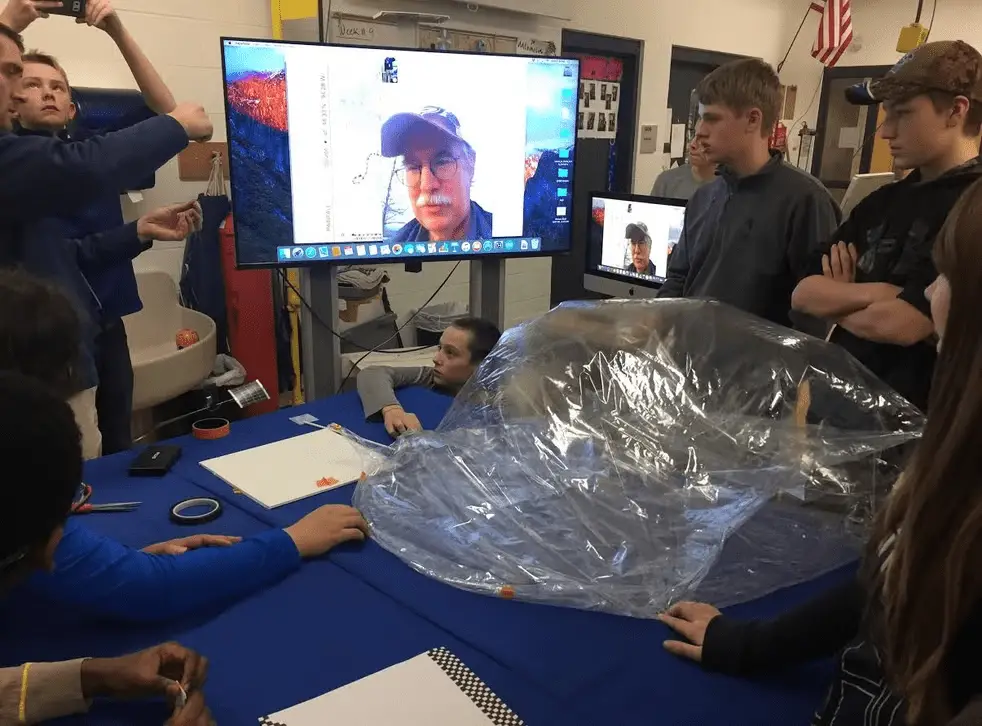
A small, globe-trotting balloon declared “missing in action” by an Illinois-based hobbyist club on Feb. 15 has emerged as a candidate to explain one of the three mystery objects shot down by U.S. Air Force fighters since Feb. 10.
On February 15, a small balloon that was flying around the world was declared missing by a local club in Illinois. It has since emerged as a possible explanation for one of the three objects that were shot down by the US Air Force’s heat-seeking missiles.
The pieces of circumstantial evidence supporting the claim are intriguing. The club’s silver-colored balloon, which was reported missing on February 10, reported its last position at around 38,910 feet. A forecasting tool known as the HYSPLIT model, which is used by NOAA, also predicted that the object would be located somewhere over the Yukon Territory on February 11.
On the same day, an F-22 aircraft from Lockheed Martin was able to shoot down an unidentified object in the same area.
Some members of the community, which is composed of amateur-scale balloonists and ham radio users, are also questioning the nature of this mysterious object. They have contacted the FBI and the military to try and explain what it might be.
According to Ron Meadows, the founder of a tech company that makes small electronic balloons, the object most likely won’t look like it’s intelligent enough to shoot it down.
The descriptions of the objects that were shot down on February 10-12 match the shapes and altitudes of the small electronic balloons that can be purchased for around $12 to $180 each. Tom Medlin, a retired engineer, noted that the objects most likely were pico balloons. He is the co-host of a radio program that’s focused on amateur radio.
Various federal agencies, including the FBI and NORAD, were asked to comment on the possibility of a pico balloon being involved in the incident. The agencies declined to answer questions. The Office of the Secretary Of Defense and the FBI also didn’t acknowledge the idea that the harmless balloons could be the cause of the incident.
NORAD also didn’t provide an update regarding the status of the three objects. On February 15, John Kirby, a spokesperson for the National Security Council, said that the objects might have been launched for commercial purposes.
Over the past decade, the development of circumnavigational pico-balloons has been increasing. According to Lee Meadows, he and his father, Ron, were able to calculate the helium gas needed to make a standard latex balloon perform well at high altitudes. These devices, which are attached to a tether, can update their position to various radio stations around the world.
Several dozen such balloons can be launched at any given moment. They circle the Earth several times before they break apart or malfunction. Launch teams are seldom able to recover their balloons.
There are various types of balloons that can be used. For instance, some people still use the Mylar party balloons, which have a published calculation that shows the amount of gas that’s needed to be injected. However, the round-shaped ones are not capable of rising to higher altitudes.
For $12, Medlin says he uses a Japanese company’s foil balloon, which is made of a material that can endure long periods of exposure at high altitudes. Despite the manufacturer’s claims that the balloon was never intended to be used for this purpose, he noted that the material has proved resilient. Another alternative is the SBS made by Meadows’ company. These are special balloons that are designed to perform well in circumnavigational flights.
The members of the pico-balloon community are worried about the negative publicity they’re getting due to the incident. Some members of Congress and White House reportedly called the objects they shot down at high altitudes dangerous.
According to Kirby, the objects were identified as being capable of posing a threat to air traffic. Although they didn’t have specific reasons to believe that they were being used for surveillance, they could have been launched for commercial reasons.
According to Medlin and Meadows, the small balloons, which weigh less than six pounds, are not subject to FAA restrictions. Three nations, namely North Korea, Yemen, and the UK, have strict airspace restrictions that prevent the transmissions of data from the balloons. As a result, the community has developed a geo-fencing software that prevents the objects from flying over these countries.
The community is also concerned that the objects could be shot down. According to Medlin, one of his balloons, which is known as HYSPLIT, is expected to enter US airspace on February 17. It has already traveled around the world several times, and its trajectory carried it over China before it eventually reached the U.S. or Mexican airspaces.


Leave a Reply